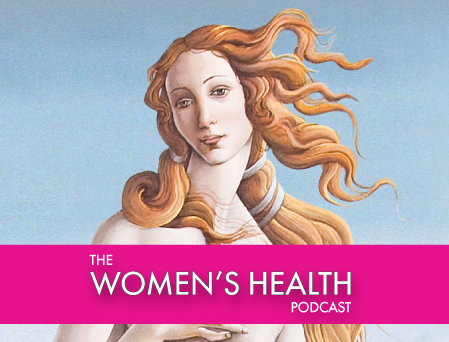The questions answered in this podcast are listed below.
They were compiled by GPs and health professionals around Australia.
1. Does oestrogen-alone MHT increase risk of breast cancer or ovarian cancer?
2. How safe is menopausal hormone therapy in a woman with a history of migraine with or without aura? Is any type of MHT safer than another?
3. If a woman has dense breasts on mammography, is our only option tibolone if post menopause, and no option at all if perimenopausal?
4. Can you clarify the concerns regarding the use and safety of the troches used by some “hormone doctors”?
5. Can you still use the combined oral contraceptive pill if you are a non-smoker but over 45 years of age?
6. Is it worth it doing breast ultrasound as well as mammography routinely before prescribing MHT?
7. At what period after commencing MHT do you investigate PV bleeding to ensure it is not due to endometrial cancer?
8. How long after Mirena removal are blood tests reliable for the diagnosis of menopause?
9. One of my patients is now 48 years old and on her 2nd Mirena (replaced 2yrs ago). She has had no vaginal bleeding for the past 5 years. She is wondering if she is post-menopausal (no symptoms) as she has read about importance of oestrogen for bone and cardiovascular health. Is it worth doing FSH levels? Is there a role for oestrogen replacement in this case?
10. How long does a woman have to have ceased COCP for before you can accurately measure FSH/LH/oestradiol ?
11. Most labs only give E2 level as a range, if low will say “<100”. Can we request a more specific level or is there a specific lab you recommend for this?
12. When requesting hormone panels, my lab always lists FSH, LH, oestrogen, and progesterone. Are these all necessary?
13. How long after the last period can you safely start MHT?
14. Definition of menopause, for the safety of stopping contraception is two years with no menses. If a woman is taking cyclical MHT then she may still have regular bleeding and I find it difficult to advise them when it is safe to stop contraception. Can you please advise?
15. Is there a maximum duration of MHT use? I hear conflicting advice re women in their 70’s who are still on combined MHT.
16. I know you can use Mirena with oestrogen for MHT. Can you also use other progestogen-only contraception like depo/Implanon/ or Slinda for both endometrial protection and contraception?
17. For perimenopausal women being treated with OCP such as Zoely, what dose of oestrogen (oral or patch) would you recommend for during pill free period to control hot flushes?
18. What is the role of Catapres in the management of menopause flushes and how effective is it?
19. Can you start testosterone in women under 50? Under 45? Is it just for low libido or could it help with other symptoms like lack of energy or brain fog?
20. Why is micronised progesterone recommended to take for 25 days of the month when using continuously? Is it necessary to stop for a few days and is it safe to just take every day?
Advice on a specific cases
• My patient was treated with chemotherapy for non-Hodgkin’s lymphoma in her early 20s. She required oophorectomy (reason not stated) and went on to have two children post treatment. She does not want any further children. She is now 35-years-old and has had no periods for the past 4 months amenorrhoea and is experiencing hot flushes at night. FSH around 28 one occasion. Normal prolactin, TSH, neg bHCG. Pelvic US indicated a dominant ovarian follicle and a thin endometrium. She is not taking any exogenous hormones. Next steps? Should I refer her for tertiary care or can I manage with MHT, COCP / and regular dexa scans? Would you do additional screening such as Fragile x? Symptoms aside from amenorrhoea are now nocturnal hot flushes. No desire for further pregnancies.
• My patient is now in her mid-40s and has a higher risk of osteoporosis given her family history and own hypothyroidism. She has used a Mirena for contraception for the past 3 years and has had no vaginal bleeding since just after insertion. She has no hot flushes or other menopausal symptoms. Would you recommend adding estrogen therapy for prevention of osteoporosis? If so, what would you suggest and how long should she continue it?
• My patient is 55 years old. Her last period was at age 42 and she was on MHT for 6 years (transdermal estrogen + prometrium, continuous). She had osteoporosis diagnosed at age 50. At 53 she had an episode of post-menopausal bleeding and was referred to a gynaecologist for advice. Underwent hysteroscopy and curettage and a benign polyp was excised. She was then seen in a menopause clinic, and they recommended a Mirena insertion and increased her estrogel to three pumps a day. That was 2 years ago, and 12 months ago she decided to stop her oestrogen. She is adamant the gynaecologist told her that the Mirena was protective against bone loss. I disagree but have I missed something? She is reluctant to restart as she has no symptoms. A repeat BMD -2.4. I’m inclined to manage conservatively with diet/lifestyle and not restart E and monitor BMD in 2 years. Is this reasonable?
Host: Dr Terri Foran, Sexual Health Physician
Guest: Prof Rod Baber, Gynaecologist & Obstetrician
Total time: 40 mins
Recommended resources:








